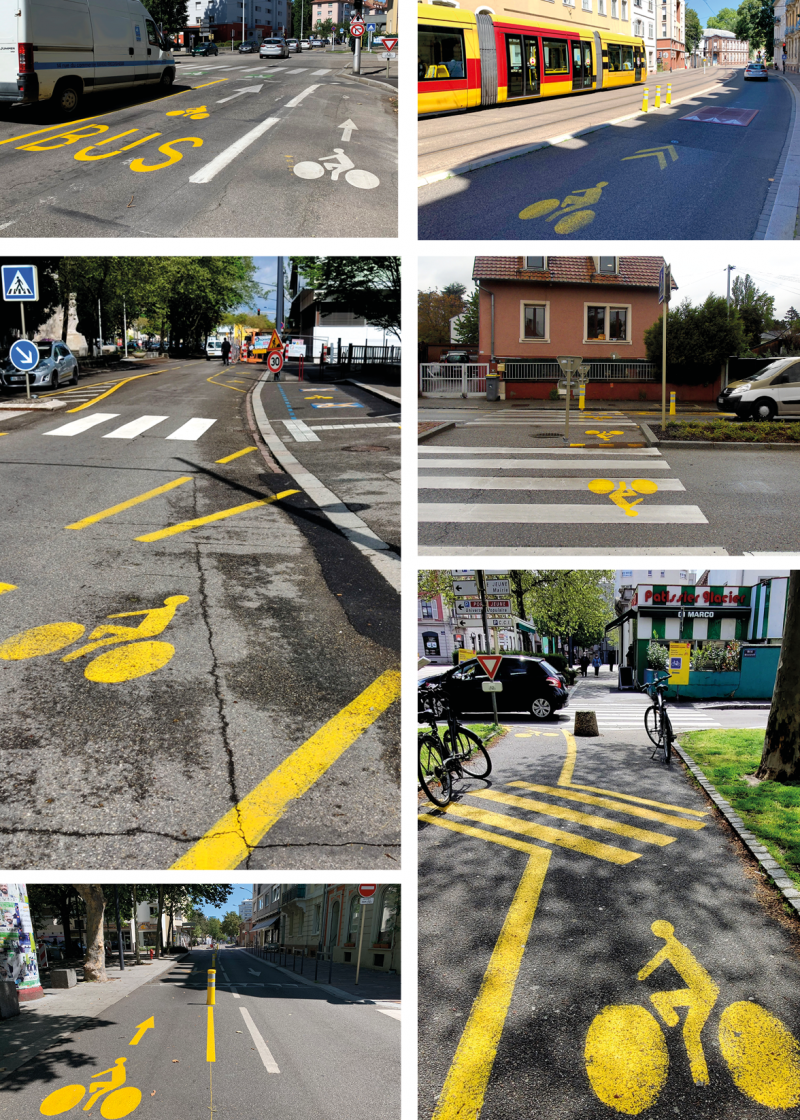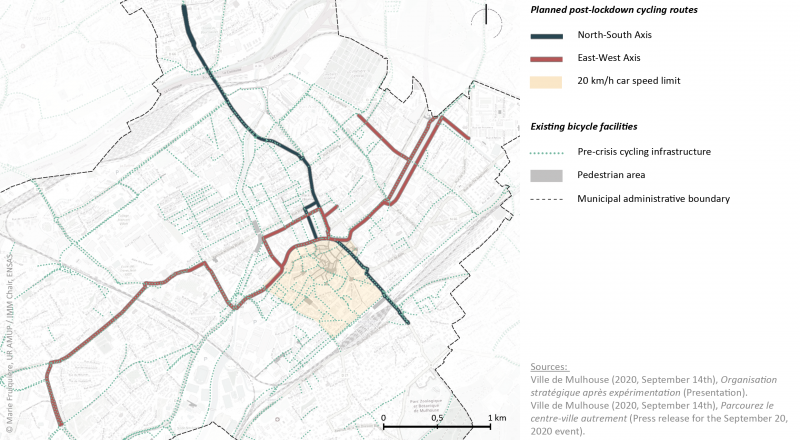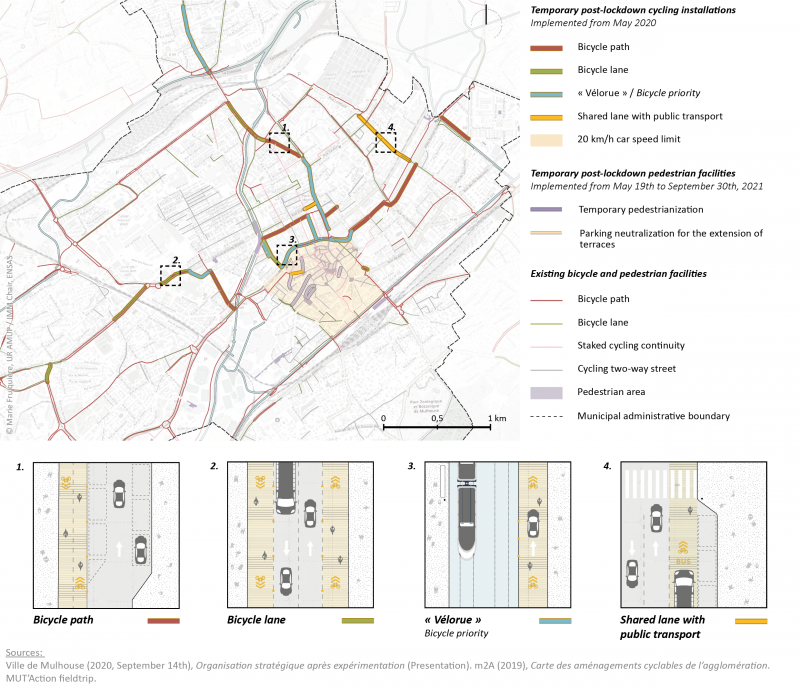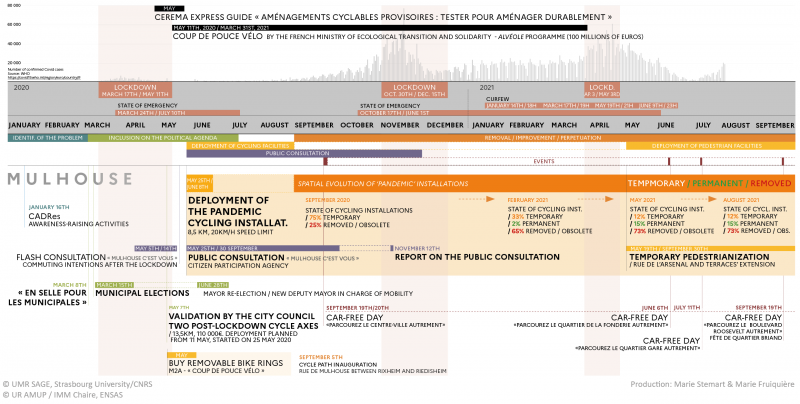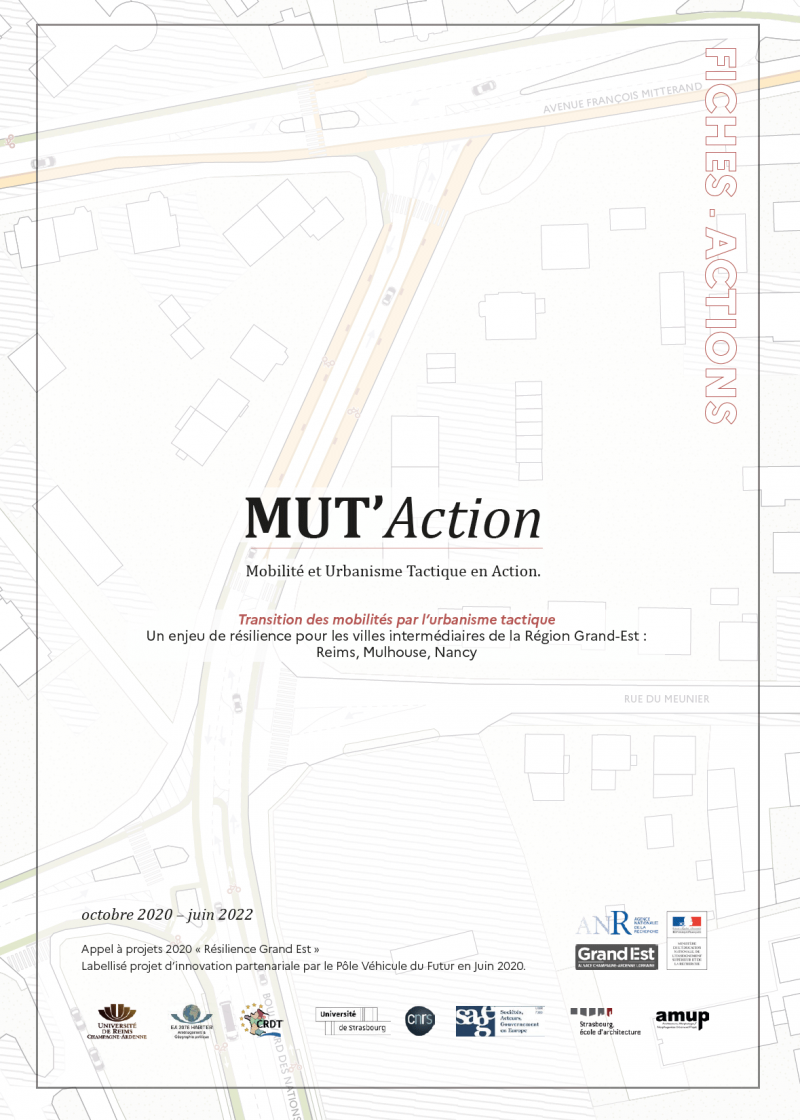Pandemic Cycling Urbanism in French Intermediate Cities: A Singular Episode or a Shift to a “New Normal”?
This paper deals with Covid developments within urban governance and planning processes, focusing on their novelty as compared to pre-pandemic modes of designing, building and living in French intermediate cities. Covid cycling urbanism is analysed from the perspective of stakeholders, planning and design approaches, participation practices and spatial features. The paper examines how lasting the urban responses are, as well as the innovations designed to cope with health crisis and their possible impacts on the post-pandemic future as “new normal’ practices in city-making.
The urban agglomeration of Mulhouse in France, particularly impacted by Covid-19 during the first lockdown in 2020, has been chosen as an exemplary investigation field. As cities around the world experimented with social and physical distancing measures, more or less temporary urban and public space transformations were implemented, in record time, in favor of active mobility modes in Mulhouse. This fast and relatively low-cost mode of action, often described as “tactical urbanism”, invites study in intermediate cities like Mulhouse where mobility – still automobile-dominated – is a major sustainability and resilience issue.
The paper draws from field work, document analysis, bibliographic monitoring, and interviews with local actors. Ultimately, it asks to what extent the experience of pandemic urbanism can serve to catalyse long-term change for city making. Is the Covid experience an isolated event strictly related to the health crisis or a lever for more profound renewal of the post-pandemic city project in the face of the global ecological crisis?




